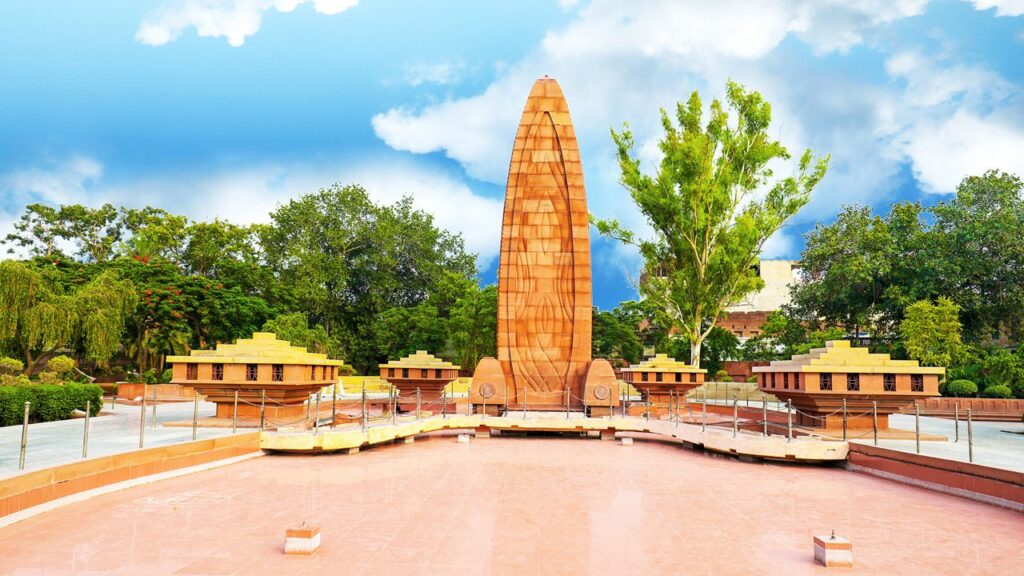Writer 1: Kirti V
The Well
The Times of India
April 13, 2026, Amritsar
Visitors thronged the Jallianwala Bagh in Amritsar as the Prime Minister paid homage to the innocent people who lost their lives at the Bagh 107 years ago.
These so-called desh bhakts infuriate me. They don’t realize the graveness of that ill-fated day.
Aah… I just hate when people hover around me. I feel suffocated!! I was suffocated that day too, years ago, when people just jumped, hoping I would save them from those dreadful bullets—and the more dreaded General Dyer.
It is vivid in my mind, and my stones ache just at the thought of it. I was a symbol of unity. My water was used by Hindus, Muslims, and Sikhs. Amritsar was celebrated by Hindus, Sikhs, and Muslims with much pomp and gaiety. The Jallianwala Bagh that housed me was decked up like a coy bride, and music filled the air. The aroma of delicacies wafted around, making me hungry.
Scores of people—young, old, and even infants—walked in and sat for the speech. It was a simple get-together, with no malicious intentions. As the crowd was engrossed listening to their leaders, the khaki-clad men marched inside and positioned themselves.
Things were peaceful till a cry of “FIRE” was heard. After that, all I heard were heart-wrenching cries of people and the continuous sound of shooting.
Was I supposed to be a saviour? At least that’s probably what they thought when they jumped into me. Children (even unborn), teenagers, and adults randomly jumped. For me—someone who is so used to breathing fresh air—this was a nightmare. People just jumped; some were shot, some were not. Slowly, I started feeling suffocated. The smell of raw flesh burning and the stench of blood and ammunition smoke made me wretch.
After what could be called a monstrous act, the soldiers left. The people who were alive were in really bad shape. Days passed; even then, the cries echoed. Was I supposed to save them? Why did they decide to jump? These questions haunt me even now. What could I have done better?
Now, if those moments were horrifying, the aftermath was terrifying. Rescuers—or rather the fortunate ones who didn’t enter the Bagh that morning—started trickling in at night. You might be wondering why. Let me clear the air for you. The monster named Gen. Dyer announced a curfew that banned people walking in groups and even vehicular movement.
Towards night, people came in search of their loved ones. Their cries and the panic added to my already aching heart. Piles of human carcasses welcomed them. Some were breathing, and some eyes were yearning for love and compassion.
Some Samaritans managed to pull—or wait, the most apt word would be drag—out the people who were alive and take them to the health centre, which was obviously not so well-equipped. As they walked into the Bagh, their feet were laden with blood, flesh, and even chipped-off palms or legs. They saw faces with eyes popped out, open guts, and partially cut necks and limbs. I could recognise some of them who frequently visited me.
The Bagh, which was a beautiful garden, now resembled a garden of blood and flesh. The wall and I stood as the silent witnesses to the most inhuman massacre in history. The Bagh never returned to normalcy. The echoes of April 13, 1919, can still be heard.
Reshma Krishnan
The Wall
Oh, hello there. Wow, what a turnout of people today. I love when people visit, you know. I am old now, but still standing tall, you see. Tall as ever.
I stood tall that day too. What day, you ask?
That day, Sir, when I stopped breathing. I stopped living.
Why?
You see those bullet marks on my chest? I am not proud of them. I am ashamed. I did not take them while fighting; I took them while failing to do my duty.
Well, I am the infamous wall that surrounds the Jallianwala Bagh. Yeah, you read about me in your books. It is always a pain to live with a troublesome memory. I was a garden wall. My duty was to protect the young and old as they played carefree. Did I fail my duty? Everything changed on that one fateful day.
It was the Baisakhi festival, and I was enjoying the early morning sun, anticipating the festivities. I had been hearing the gossip of independence and the rules, etc. What do I understand? I am just a wall.
The crowd of youngsters and adults gathered. Many elderly people, women, and kids poured in and began to settle. It seemed they had gathered to celebrate the festival. I was happy… let the celebrations begin. Oye, Bhangra pao ji!
Suddenly, I shivered. Didn’t they hear the announcement? People were not supposed to gather. I wish I could shout, scream, and tell them. Go away! Go home!
But I stood still. I watched.
Have you experienced an earthquake? The way the earth below your feet starts trembling. I remember the precise feeling. Footsteps—a lot of them—came marching towards me. Fifty men with rifles arrived. Their leader stood tall. I prayed that he would let people disperse. Let them go home.
Did he? No.
I stretch a long way, you know. I have long arms. But my arms did not move that day to shelter those innocent people. He asked his men to open fire. Bullets were shot. Red splashes everywhere. Bullets don’t see who you are. They do their work. They kill.
Men, women, children, and the elderly looked up to me for help. They tried to climb me and got shot—one by one. They knew I would not be of assistance. They turned to the well.
I still get nightmares. Remember, I told you I have long arms? Even today, they fail to move. Echoes of the bullets firing, people shouting, and children crying fill my ears. I, unable to close my ears, just listen.
I have a friend who shares my nightmares: the Well.
She is my go-to friend when I need to voice out my troubles. Come, let’s meet her.
There she is, all covered up now. Thanks to the tourists who started throwing coins into her.
“How are you doing, my friend?”
“Just reliving and shuddering at the thought of that fatal day.”
“Were we wrong in not protecting these innocent people? Our people?”
“Hey, no. We did what we could. They jumped into me or climbed on you with hopes of life. Alas, the tyrant Dyer and his men were way more brutal and ruthless.”
“We can just request the current generation to respect the hard-earned freedom and give back to the country. Isn’t it, dear friend?”
“True.”
As evening falls, the famous, infamous Wall and the Well sigh and look at each other as they watch people trickle in and out of the Jallianwala Bagh.
Image Courtesy: https://www.incredibleindia.gov.in/en/punjab/amritsar/jallianwala-bagh
Your thoughts matter—share them below and let history hear your echo.
– Reshma Krishnan & Kirti V
About the Writers

Reshma Krishnan is a creative content and copywriter based in Mumbai, where she lives with her family. A storyteller at heart, she finds joy in weaving emotions into words. When she’s not writing or reading, you’ll find her exploring new places and building meaningful connections wherever she goes.
Kirti V is a Bangalore-based author, poet, and former IT professional whose literary journey took flight during the 2020 pandemic. A passionate storyteller, multilingual poet, and award-winning orator, her work spans diverse genres and languages. Kirti is the proud recipient of honors such as the Literoma Author of the Year, Ukiyoto Poet of the Year, and NE8X LitFest Author of the Year. She has authored three poetry collections—Tides of Life, From My Pen, and Poetic Pearls. Two of her books, Tides of Life and Poetic Pearls, have received the Asian Literary Society’s Certificate of Excellence.
You can explore more of her work at www.kirtisignature.com.



